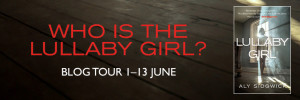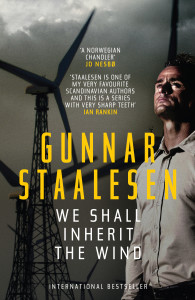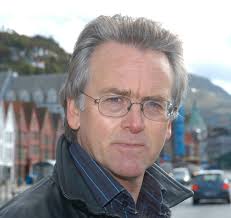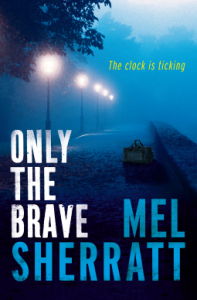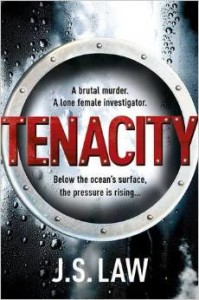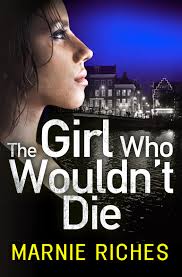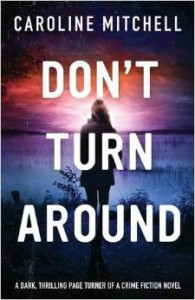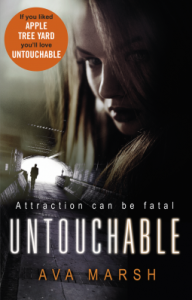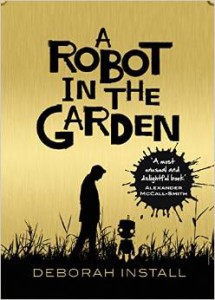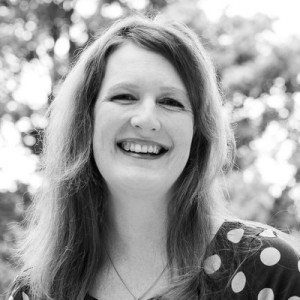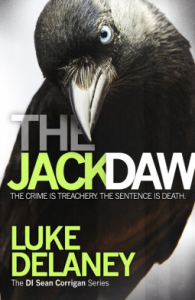Interview With Aly Sidgwick – Lullaby Girl
Today I am delighted to welcome Aly Sidgwick to the blog. Aly has kindly agreed to answer a few of my questions about her debut novel Lullaby Girl:
To open, I believe that I have to ask the most obvious question: what prompted the idea of a story about a girl with amnesia?
There were two main inspirations for the book. One was my long standing fascination with people on the edge of sanity- specifically people who’ve lost their sense of self- and the second was my own history of anxiety. The fragility of the human soul fascinates me, as does that ‘no man’s land’ people enter after they’re pushed beyond their limits. The rule book goes out of the window, then, and people can make wild decisions. Kent’s ‘Piano Man’ had gone through that process, and so had the Japanese girl whose desperate pilgrimage to Fargo ended in her death by hypothermia. Their stories moved me, because I’ve always been afraid of tipping over that ‘edge’ myself. When I started writing LG I was in recovery from a nervous breakdown, and was still heavily medicated. In a way the book was my attempt to make sense of what had happened to me. I wanted to create a fragile character, who’d reverted to a simple state in order to survive.
In Katherine’s sanctuary while she recovers there are two central carers. Rhona (who struck me as a Guardian Angel) while Joyce was the Nurse Ratched figure. Was Joyce a bully or was she worn down and frustrated by Katherine’s behaviour during her ‘recovery’.
I’m so glad you picked up on the Nurse Ratched similarity! With Joyce, it wasn’t so much about her being a bully… Rather, I wanted her to be vain, brusque and impatient, in a way that jarred with Kathy’s frame of mind. She’s the sort of carer who follows a script without any real empathy with the patient. However, I did want to leave it quite open… Joyce isn’t just being unkind for the sake of unkindness. She’s short tempered, so Katherine’s difficult behaviour pushes her buttons.
As a supplemental to this – does a story benefit from the presence of a bully to get readers on the side of the central character?
Every story’s got to have an antagonist, hasn’t it? I liked creating a character who’d cause tension, but it wasn’t a direct attempt to gain the reader’s sympathy for Kathy. The tension between them was my only goal.
Lullaby Girl covers a fair bit of mileage as the story unfolds. Are many of the locations in the story places you have visited (and are perhaps special to you)? Or does the remoteness of Scotland’s Highlands just provide a convenient hideaway for Katherine?
The places in the story are based on places I’ve lived, but taken to the extreme. For instance, I actually did live in a little wooden house on a hill in the country near Oslo, and I did have a boyfriend who lived in Trondheim. I spent a lot of time in Trondheim and Oslo, so my own observations of those places made it into the book. But the northern town in LG is fictional, as are the people and story. I’ve also spent a lot of time in the north-western Scottish highlands, so that landscape is very dear to me. I’m drawn to the wilderness and to isolated, northern communities, both here and in Scandinavia, so I wanted to describe the places I love. But those landscapes also produce a certain mentality- gentle yet fierce, deep thinking, resourceful and just a wee bit dark. Those landscapes and those people create a good backdrop for a story, and it felt right to place a fragile character in such a barren, wild landscape.
Within the story there are numerous therapies and treatments described for Katherine – are these recounted with a degree of artistic licence or have you had to research how an amnesiac would be taken through a ‘recovery’ program?
Artistic Licence! Some of the treatment is based on my own experience, some is based on a close friend’s, who has stayed in an institution. The rest is how I imagined it would be. I also made space for the fact that Gille Dubh is not set in a metropolis! In the highlands, certain services are altered to accommodate the isolated setting. For example, some remote schools have less than twenty pupils, of all ages, and their lesson structure is rescheduled to accommodate this. I wanted to create the feeling that Gille Dubh is separated from the rest of the world, and kind of makes up its own rules.
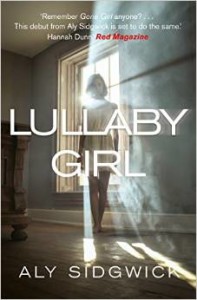 As I read Lullaby Girl I was telling friends (and Tweeting) how much I was enjoying the story but also that it was traumatic! I engaged with the plight of the Lullaby Girl and was often upset with how she was dealt blow after blow – was it hard to create a heroine then wake up each day with the aim of destroying her world around her?
As I read Lullaby Girl I was telling friends (and Tweeting) how much I was enjoying the story but also that it was traumatic! I engaged with the plight of the Lullaby Girl and was often upset with how she was dealt blow after blow – was it hard to create a heroine then wake up each day with the aim of destroying her world around her?
I didn’t really think of it that way! Yeah, Katherine has a hard time! Her history was originally slightly lighter, but with the rewrites it became worse and worse. I lost myself in the planning really, so I became slightly detached. I wanted to create an event that was bad enough to send her into meltdown. It became like a mathematical equation!
You have set some of the more shocking scenes in Norway and Katherine encountered several very nasty people there – do you think you may now need to write a second book that portrays Norway in a more positive light? I am worried that you may be taken off the Norwegian Tourist Board’s Christmas Card List!
Haha! I think you’ll find nasty people no matter where you go in the world. I adore Norway and the Norwegian people… Kathy does have her little love affair with the place initially. I ended up using its ‘foreign-ness’ as a weapon against her. Her promised land ended up isolating her instead of nurturing her. I think a lot of people feel like an outsider when they emigrate, especially when there’s a change of language. Kathy’s situation was made worse by her isolation.
Sorry…back to the more serious questions: can you share your road to publication with us? Your profile on Amazon suggests you started writing in secret, at what point did you feel you had to share your work?
I’d been writing for about a year before I told anyone what I was doing. In the beginning it felt really special, and I didn’t want to detract from the ‘magic’ by blathering too soon. Then I truly had the bug, and knew I couldn’t stop writing. Telling people made it more real. It was a relief to finally explain what I was doing with all my spare time!
I believe that you have worked for some time as a tattoo artist? Over the years are there any stand-out designs or ideas that people have requested?
Yes, I’ve been doing it for quite a while. There are certain ‘trends’ in tattooing that come and go. When I started out, tribal was all the rage. Now it’s gone full circle, and is considered ‘retro.’ I’m a custom artist, which means most of the designs are my own, and people come to me for my particular style. I do a lot of patternwork, plants and animals.
I would also love to know what the oddest tattoo you have provided was?
My pal Danne asked me for a skeletal Abraham Lincoln in a flaming wheelchair with a tommygun. That was pretty much the oddest one I’ve done.
If you were to describe what books are on your bookshelves what would you single out? Which authors or what types of book feature most prominently?
There’s a big old chunk of Haruki Murakami and Neil Gaiman, some vintage sci fi, some Crimethinc, Jon Ronson, Alasdair Gray, China Mieville, Mary Doria Russell, David Mitchell… The rest is a real mix. My absolute favourite writer is Shirley Jackson, and two books I’ve loved recently are ‘Dark Matter’ by Michelle Paver and ‘The Humans’ by Matt Haig. I also have some Norwegian books and comics.
Are you able to share if you are working on a new title?
Yes, I’m currently working on a new project. It’s too early to talk about really, but the story is set in the highlands, and part of it is set in the 1960s.
Aly, many thanks for your time. I absolutely adored Lullaby Girl and I hope many more people get to discover Katherine’s story.
Thank you! It’s been fun!
Lullaby Girl is published by Black & White Publishing and is available now in both paperback and digital format.
Aly Sidgwick is on Twitter: @Menacegrrl
